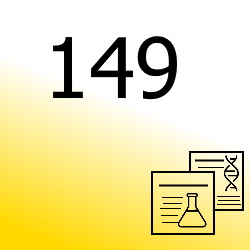How do we fix the broken peer review?
Abstract
The main goal of peer review of scientific publications is the evaluation of the quality and scientific soundness of research. In the last few decades the efficiency of this process has substantially decreased: one of the reasons is the growing number of scientific publications in relation to the number of active researchers. Many critics claim that peer review is broken, and that it needs to be changed completely – or even re-invented. These comments often stem from the lack of understanding of what peer review is, and seeing this process as the only and the final test of scientific merit. Peer review, however, is only a preliminary evaluation. Sporadic cases of articles for which peer review clearly failed are caused by the errors of individual referees, who are either overworked or don’t understand the philosophy of peer review, rather than the systemic failure of the process. The solution then is not a complete overhaul of peer review, but simply better training of the prospective reviewers.References
Biology Direct [on-line], [dostęp 20.03.2014]. Dostępny w: http://www.biologydirect.com/.
BOURNE, P., KORNGREEN, A. Ten simple rules for reviewers. PLoS Computational Biology 2006, 2(9), s. e110. Doi: 10.1371/journal.pcbi.0020110.
BURNHAM, J. The Evolution of Editorial Peer Review. JAMA 1990, 263(10), s. 1323. DOI: 10.1001/jama.1990.03440100023003.
CALCAGNO, V., DEMOINET, E., GOLLNER, K., GUIDI, L., RUTHS, D., DE MAZANCOURT, C. Flows of research manuscripts among scientific journals reveal hidden submission patterns. Science 2012, 338(6110). DOI: 10.1126/science.1227833.
EISEN, J. Stop defying “peer review” of journal publications. Phylogenomics [on-line]. 2012 [dostęp 15.03.2014]. Dostępny w: http://phylogenomics.blogspot.co.uk/2012/02/stop-deifying-peer-review-o¬f-journal.html.
EISEN, M. Peer review is f***ed up. W: It is not junk [on-line]. 2011 [dostęp 9.03.2014]. Dostępny w: http://www.michaeleisen.org/blog/?p=694.
GUNTER, C. What it’s like to be an editor at a conference. Genome Biology 2014, 14, s. 136. DOI: 10.1186/gb4136.
HAMES, I. Peer review at the beginning of the 21st century. Science Editing 2014, 1(1), s. 4–8. DOI: 10.6087/kcse.2014.1.4.
History of the journal Nature [on-line], [dostęp 20.03.2014]. Dostępny w: http://www.nature.com/nature/history/.
HORROBIN, D. The philosophical basis of peer review and the suppression of innovation. JAMA 1990, 263(10), s. 1438. DOI: 10.1001/jama.1990.03440100162024.
KENNEFICK, D. Einstein versus the Physical Review. Physics Today 2005, 9. DOI: 10.1063/1.2117822.
MARSZAŁEK, R. Arsen-gate ciąg dalszy. W: Nic prostszego [on-line]. 2013 [dostęp 9.03.2014]. Do¬stępny w: http://nicprostszego.wordpress.com/2013/02/06/arsen-gate-ciag-dalszy/.
MARSZAŁEK, R. O bakteriach, których nie było (tl;dr;bs). W: Nic prostszego po godzinach [on-line]. 2012 [dostęp 9.03.2014]. Dostępny w: http://nicprostszego.natemat.pl/4075,o-bakteriach-ktorych-nie¬-bylo-tl-dr-bs.
MARSZAŁEK, R. O rozkoszach bycia publikowanym. W: Nic prostszego [on-line]. 2012 [dostęp 20.03.2014]. Dostępny w: http://nicprostszego.wordpress.com/2012/07/18/o-rozkoszach-bycia-publiko¬wanym/.
MARSZAŁEK, R. Otwarta nauka a filozofia procesu wydawniczego. W: Nic prostszego [on-line]. 2013 [dostęp 9.03.2014]. Dostępny w: http://nicprostszego.wordpress.com/2013/10/23/otwarta-nauka-a-filo¬zofia-procesu-wydawczniczego/.
MARSZAŁEK, R. Świat naukowy chce nowych wskaźników. W: Nic prostszego [on-line]. 2013 [dostęp 9.03.2014]. Dostępny w: http://nicprostszego.wordpress.com/2013/05/18/swiat-naukowy-chce-nowy¬ch-wskaznikow/.
ROSSI, J. Statistical power of psychological research: What have we gained in 20 years? Journal of Consulting and Clinical Psychology 1990, 58(5), s. 646–656. DOI:10.1037/0022-006X.58.5.646.
Rubriq [on-line], [dostęp 20.03.2014]. Dostępny w: http://www.rubriq.com/.
SCHEKMAN, R. How journals like Nature, Cell and Science are damaging science. Guardian [on-line]. 2013 [dostęp 9.12.2013]. Dostępny w: http://www.theguardian.com/commentisfree/2013/dec/09/how-journals-nature-science-cell-damage-science.
SPIER, R. The history of peer-review process. Trends in Biotechnology 2002, 20(8), s. 357. DOI: 10.1016/S0167-7799(02)01985-6.

